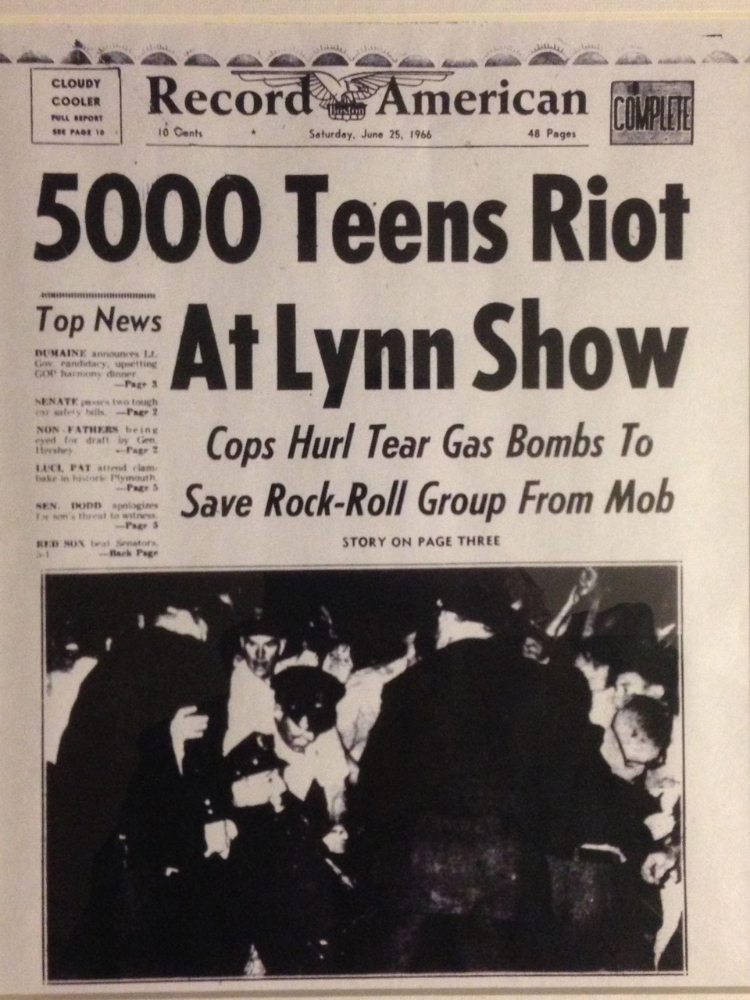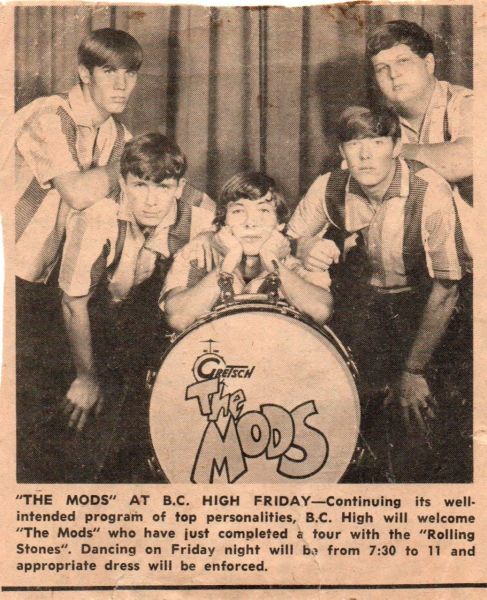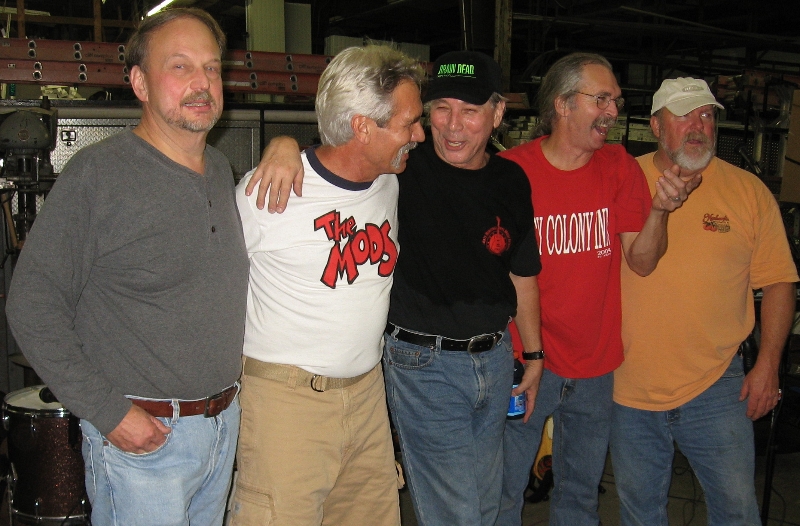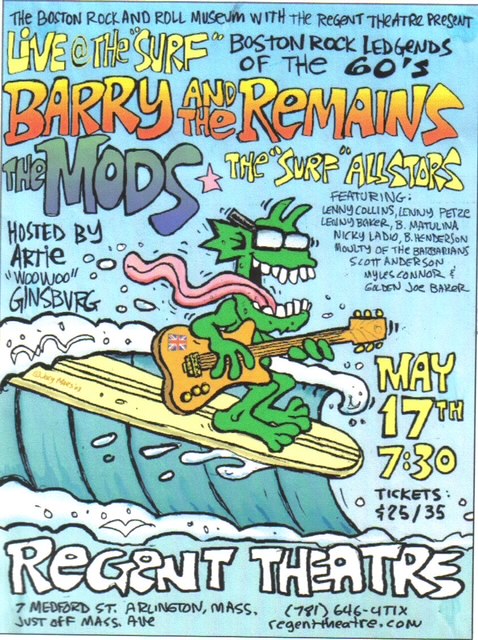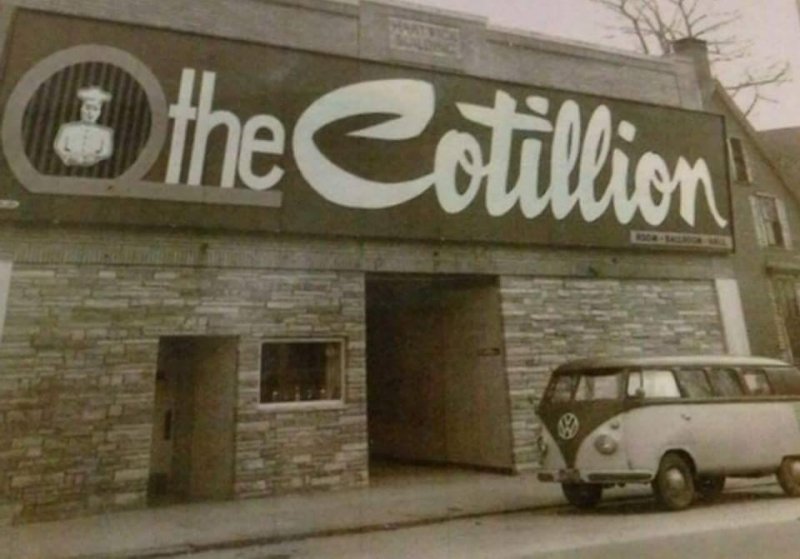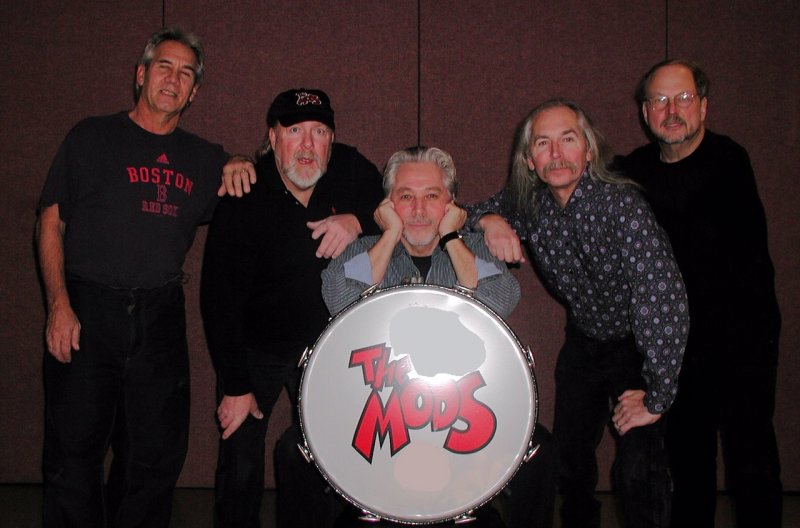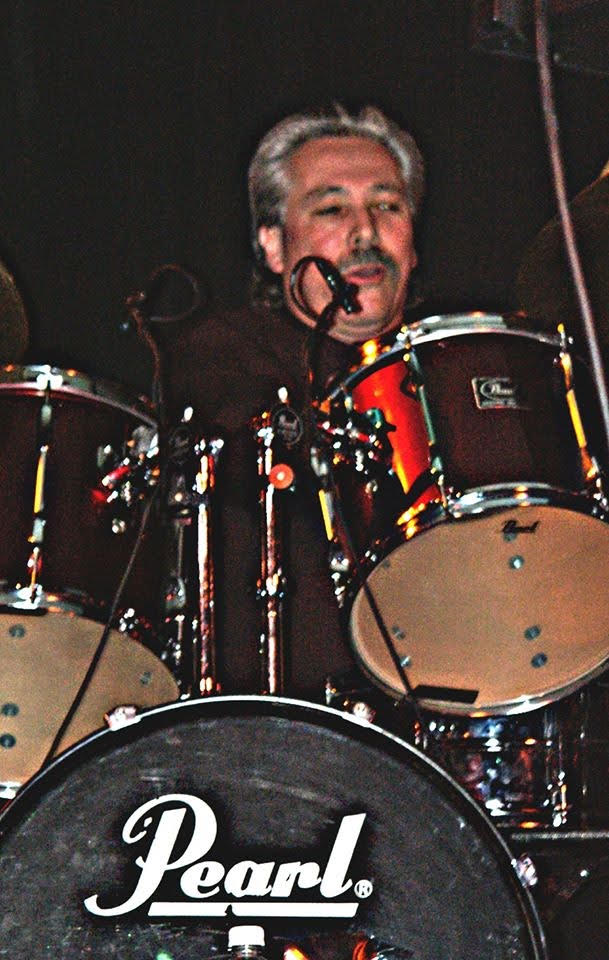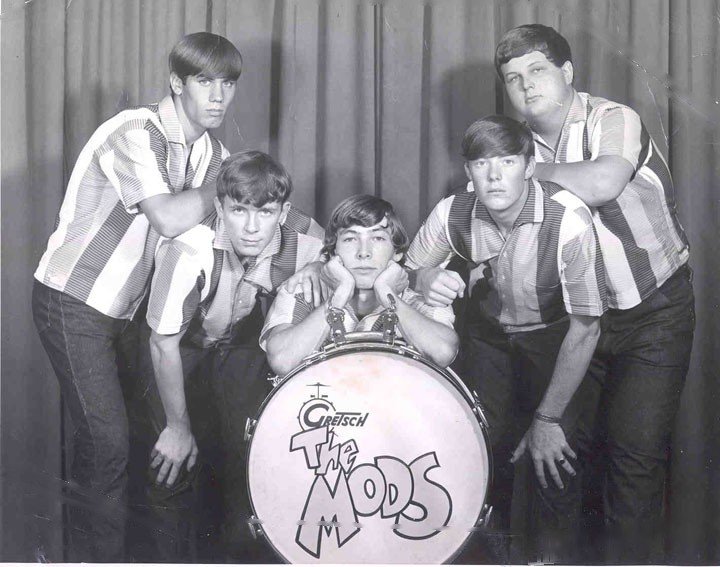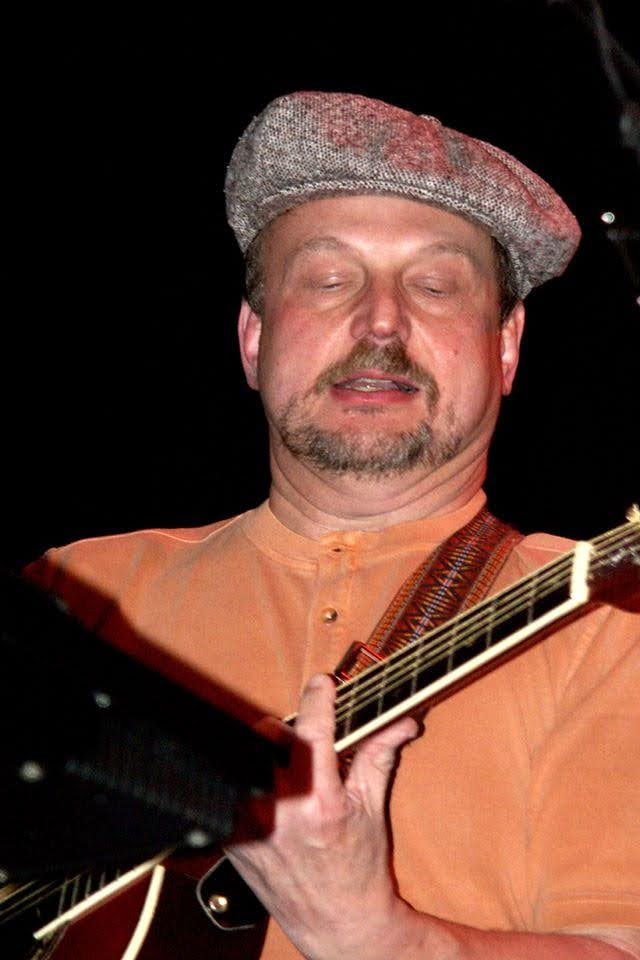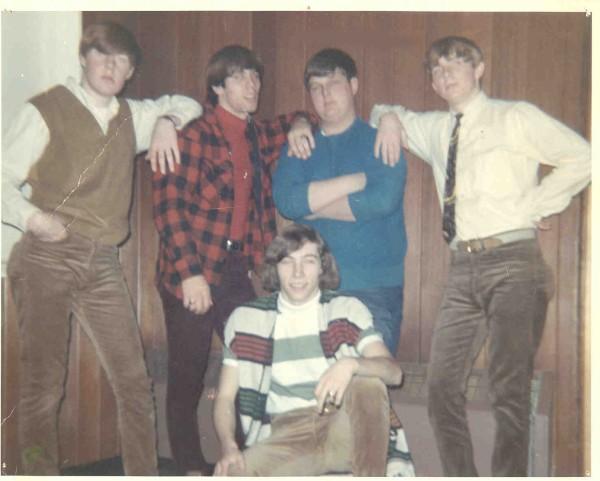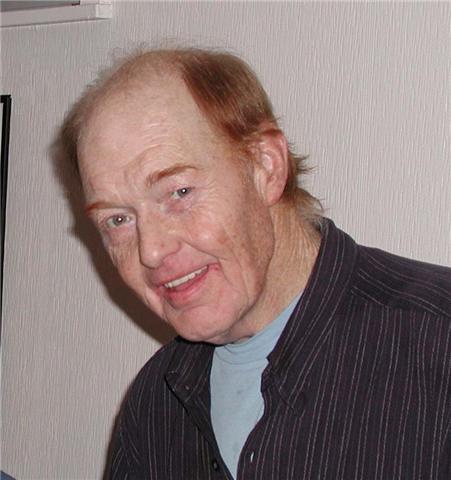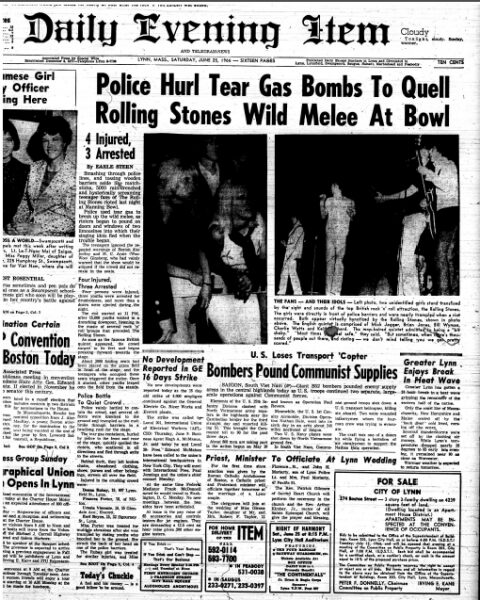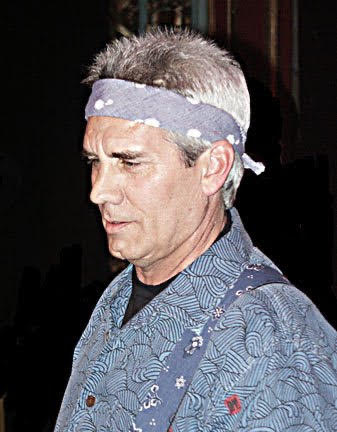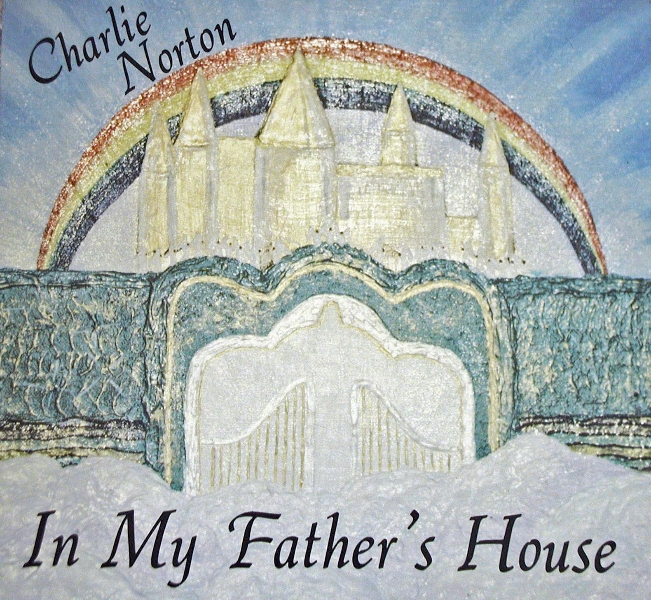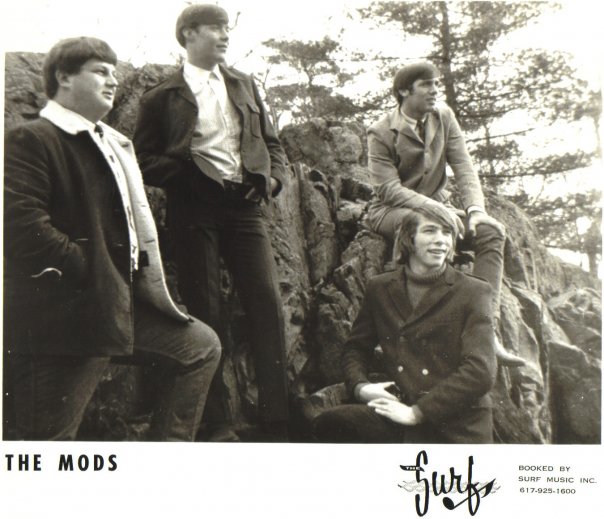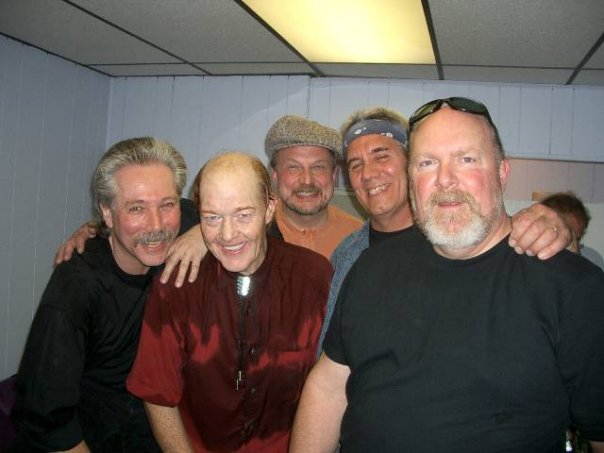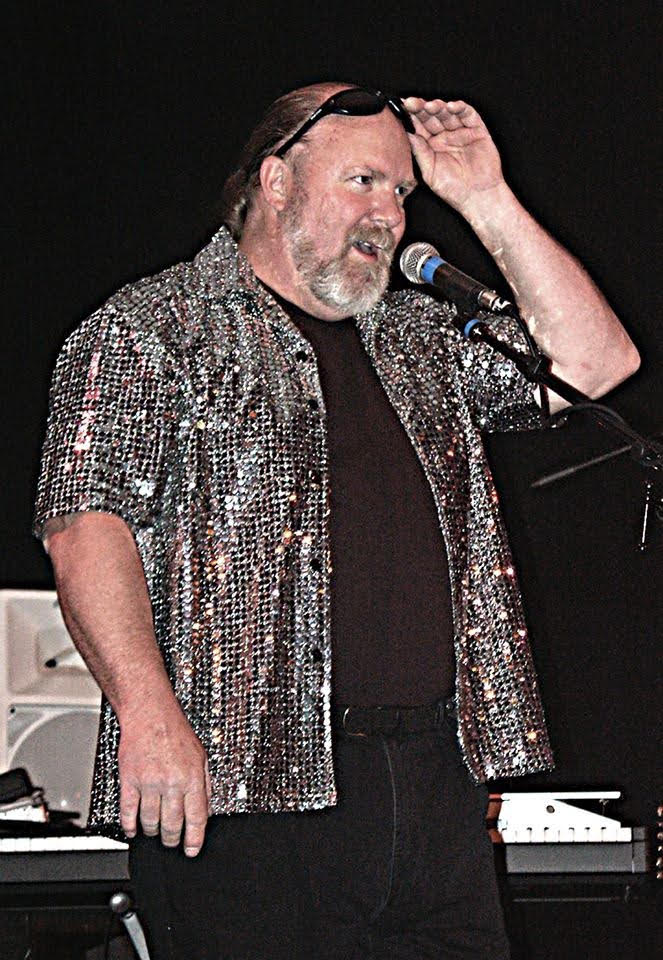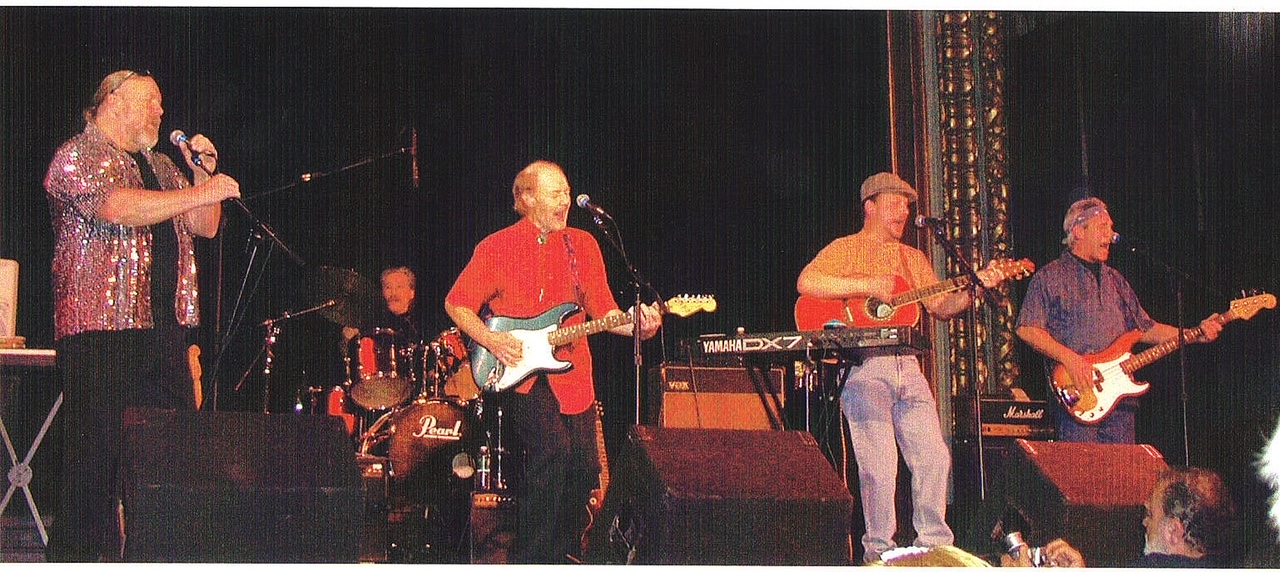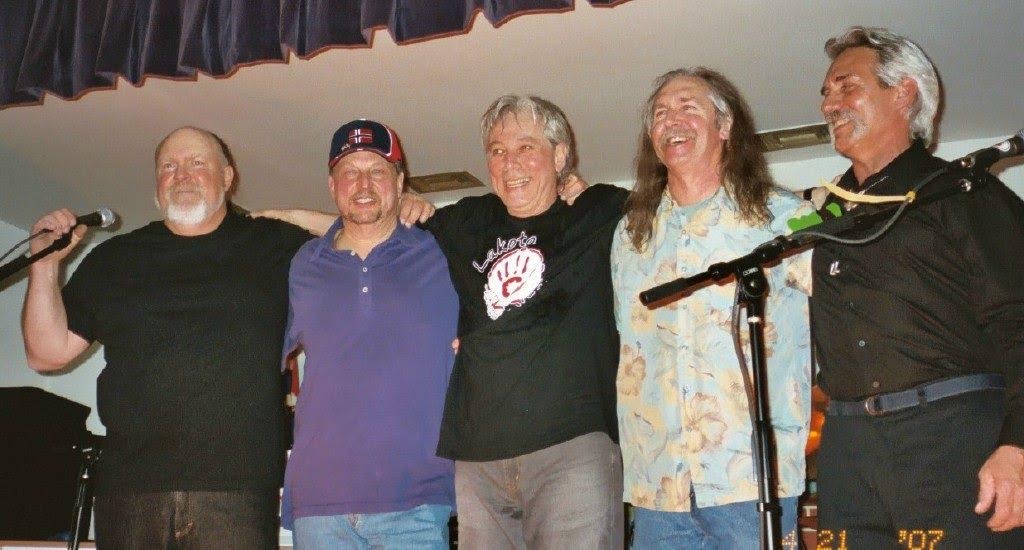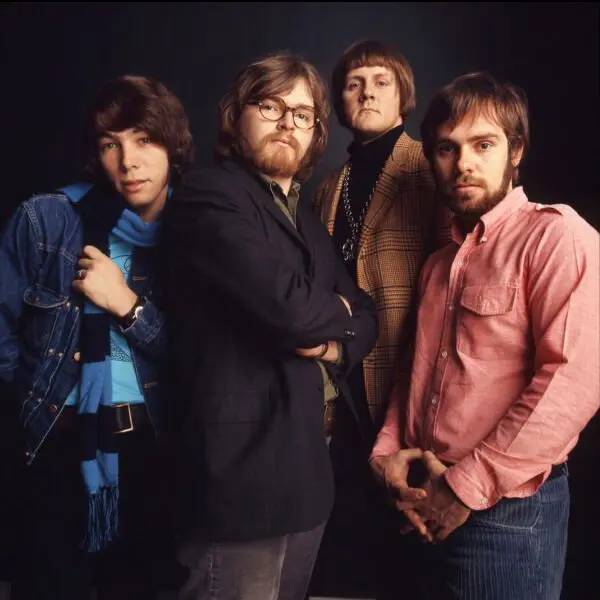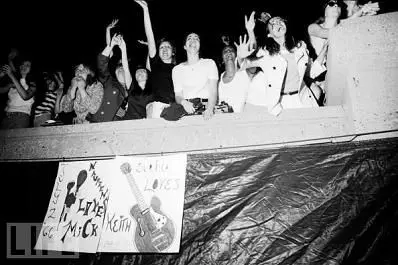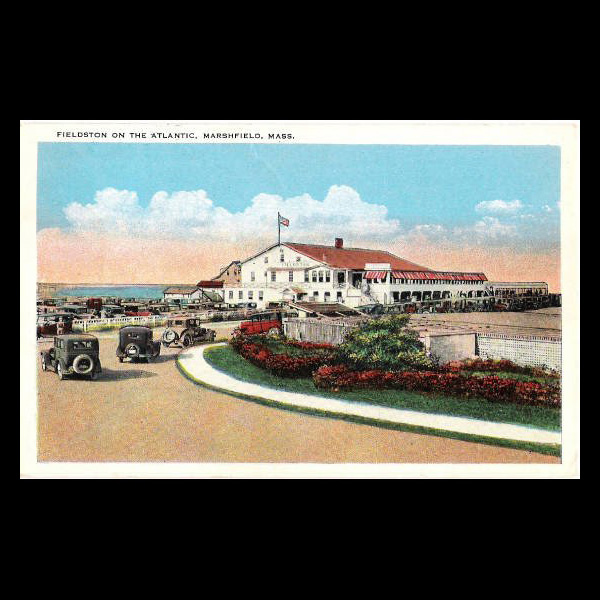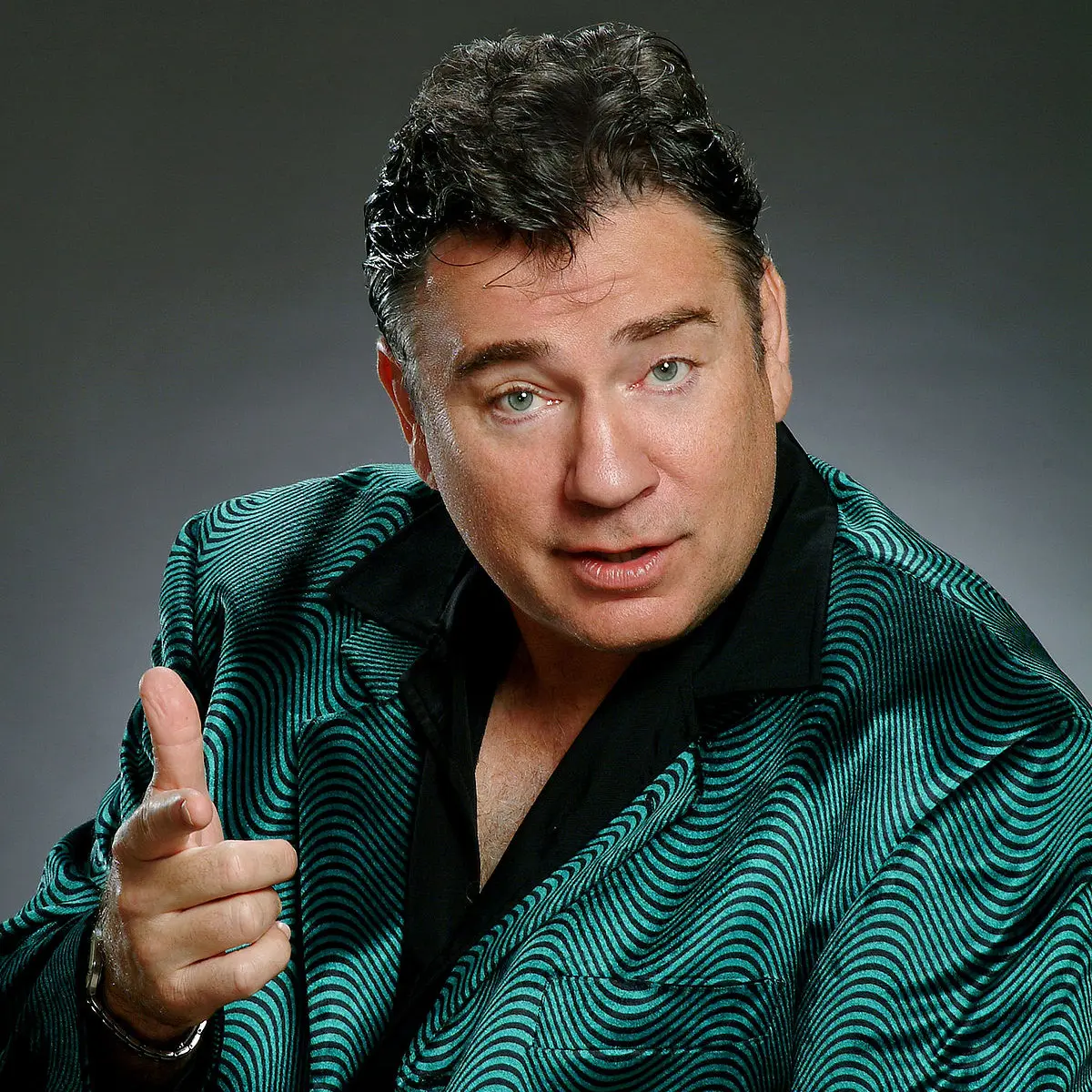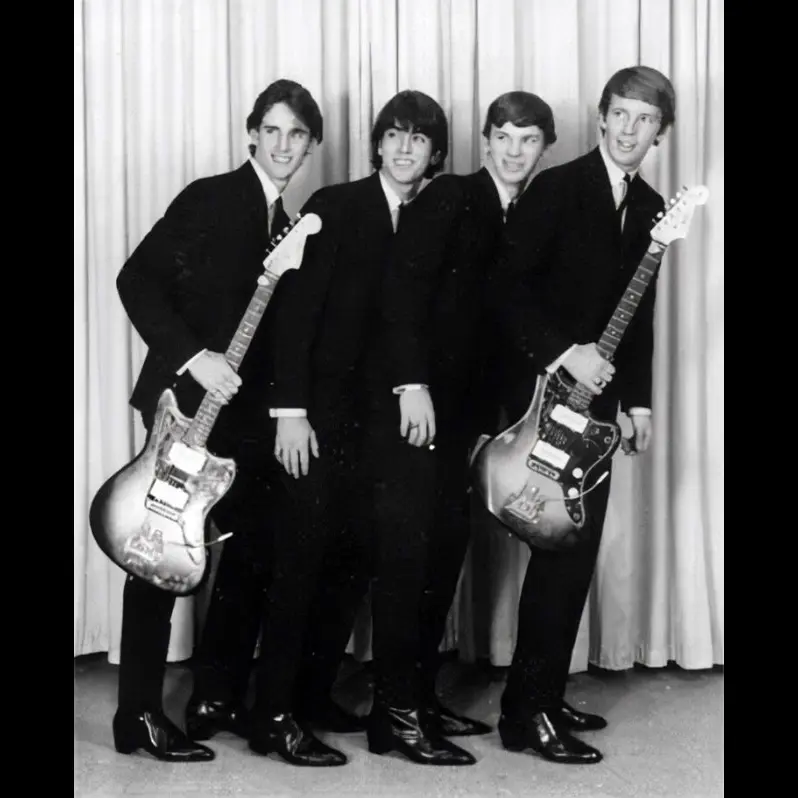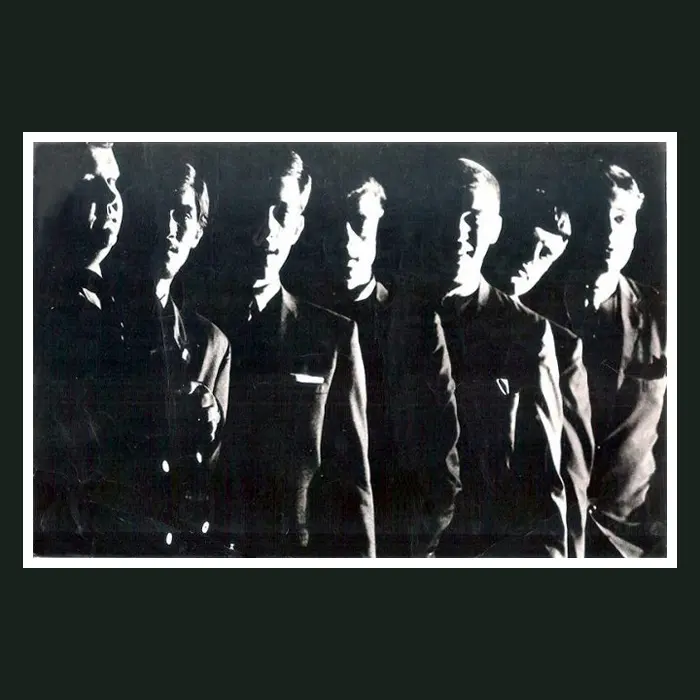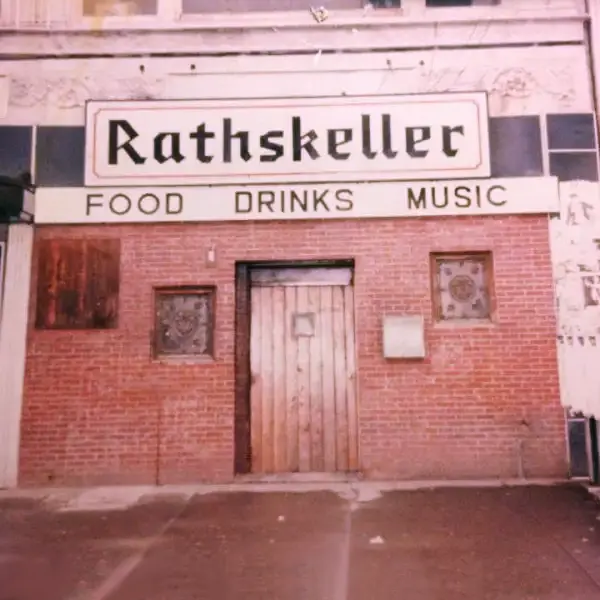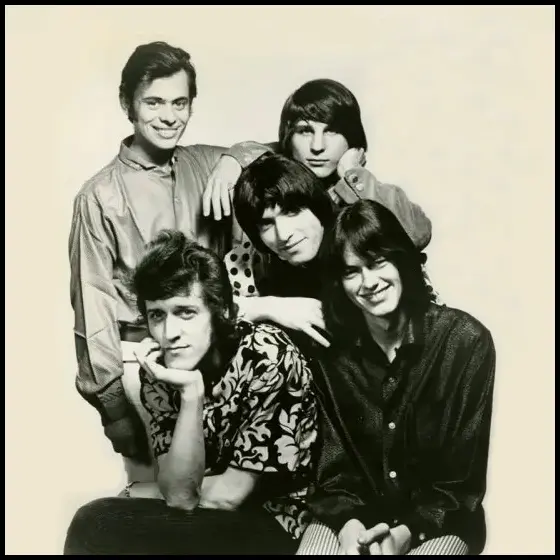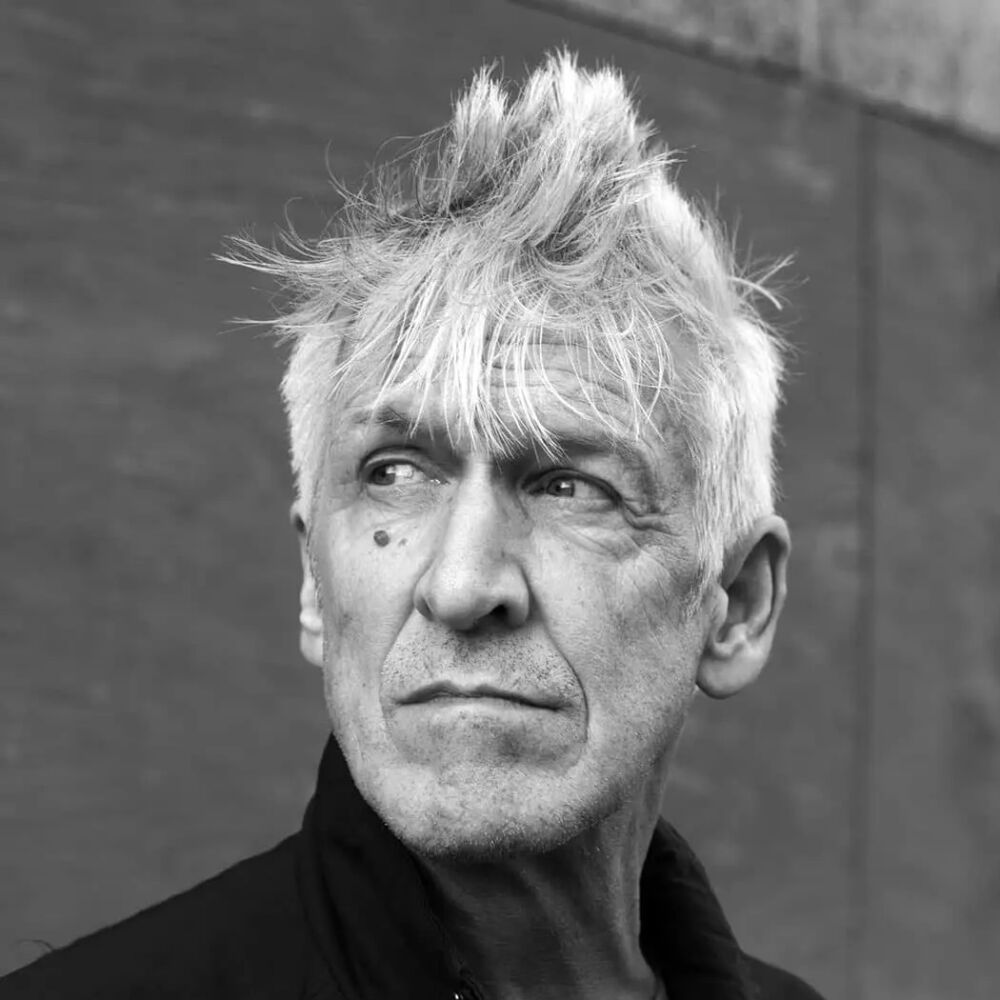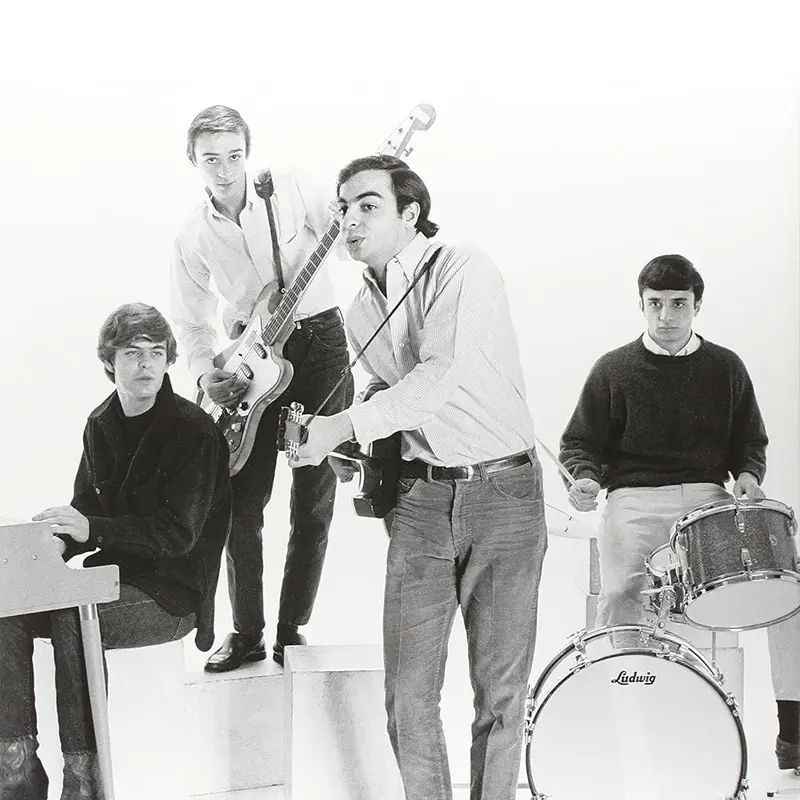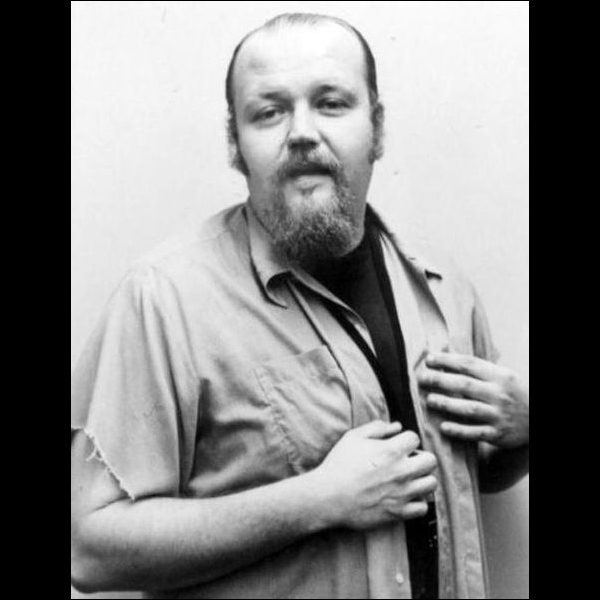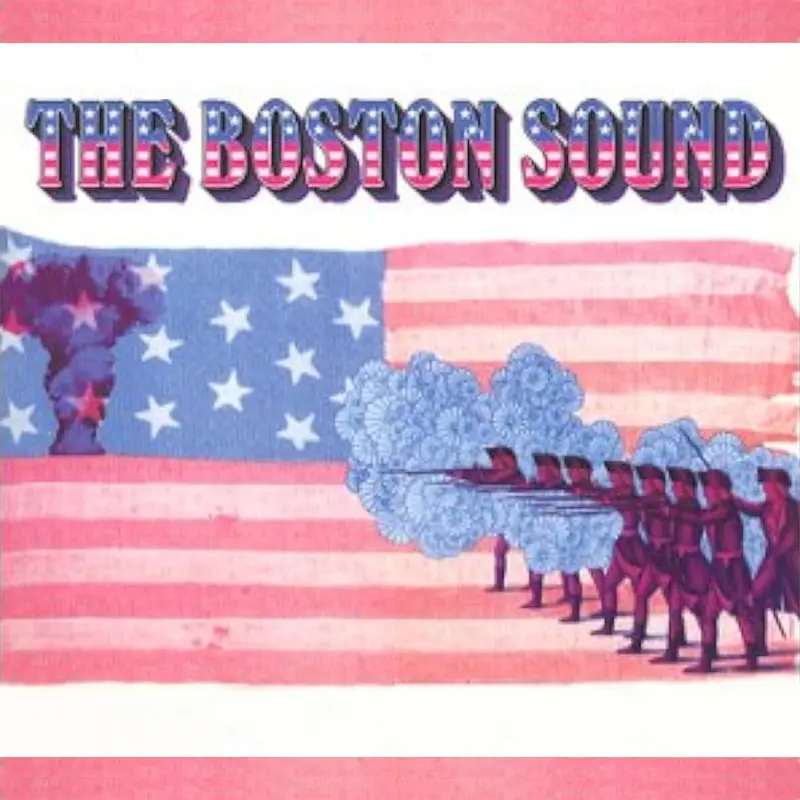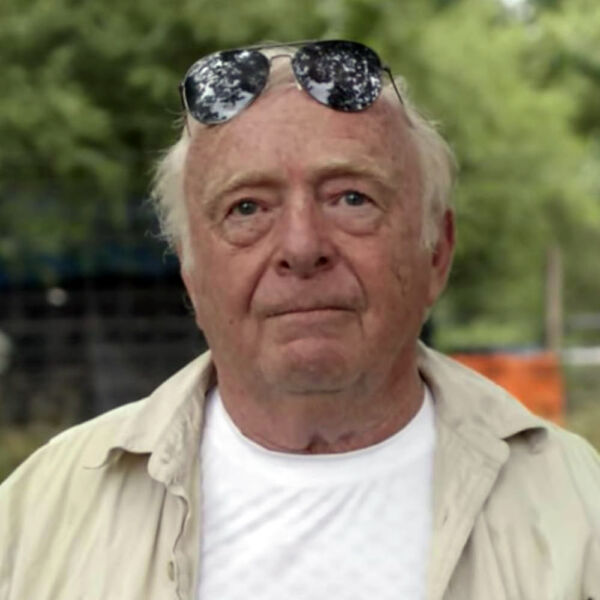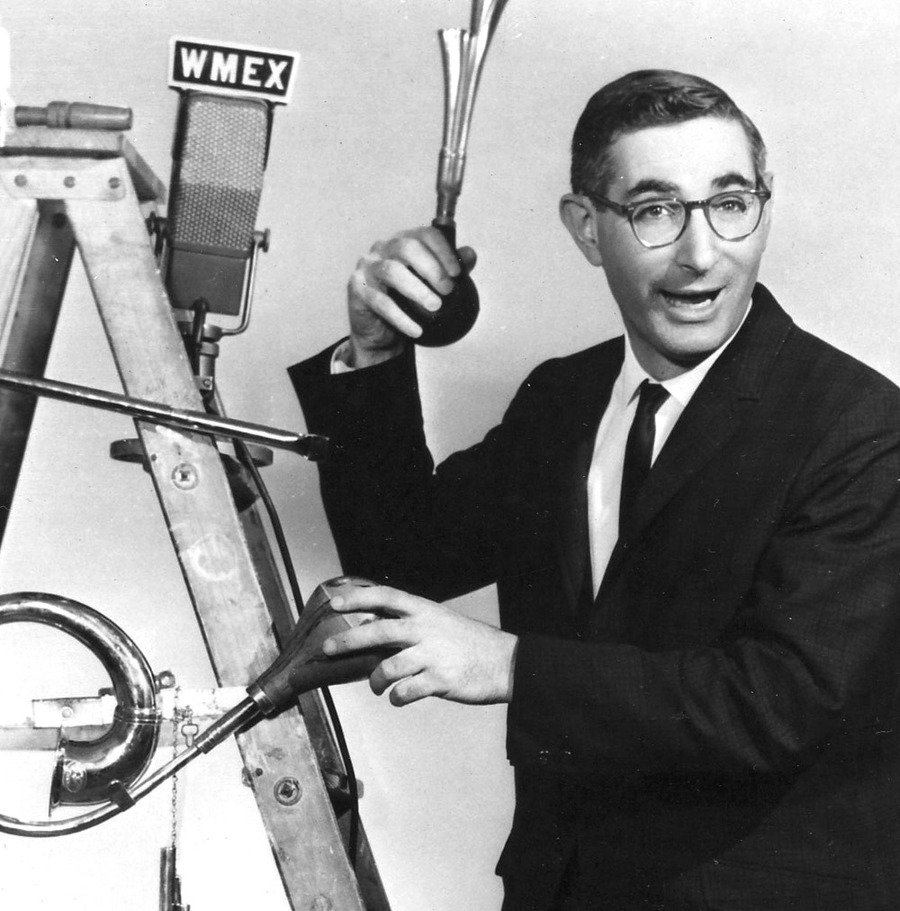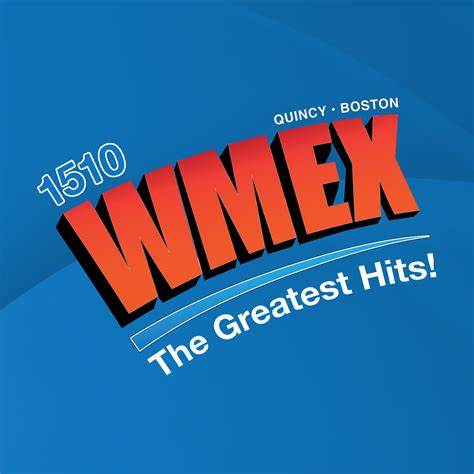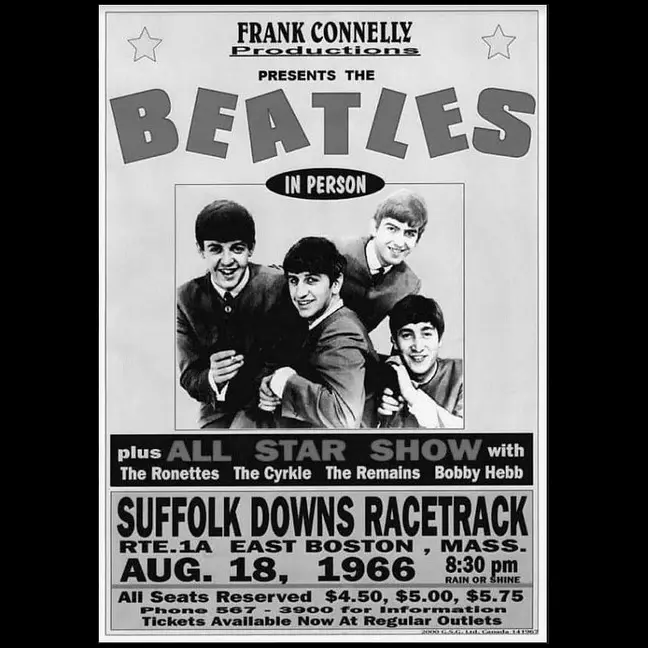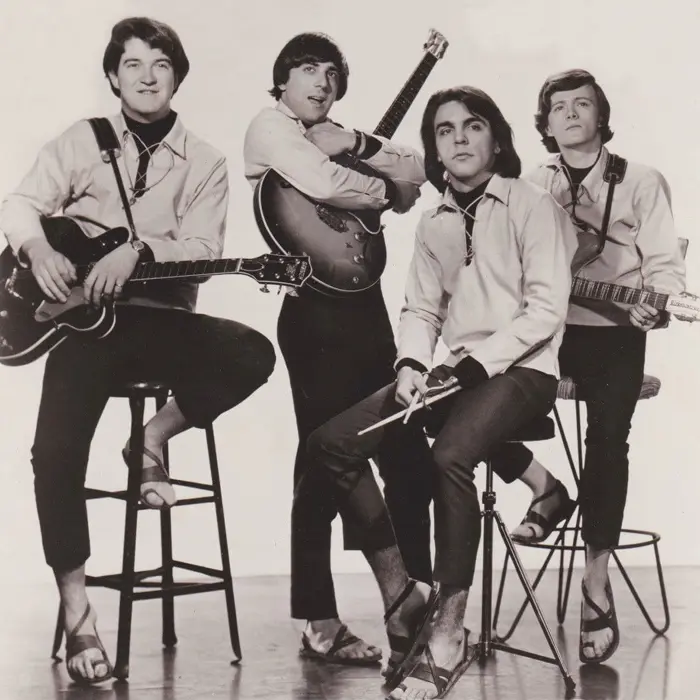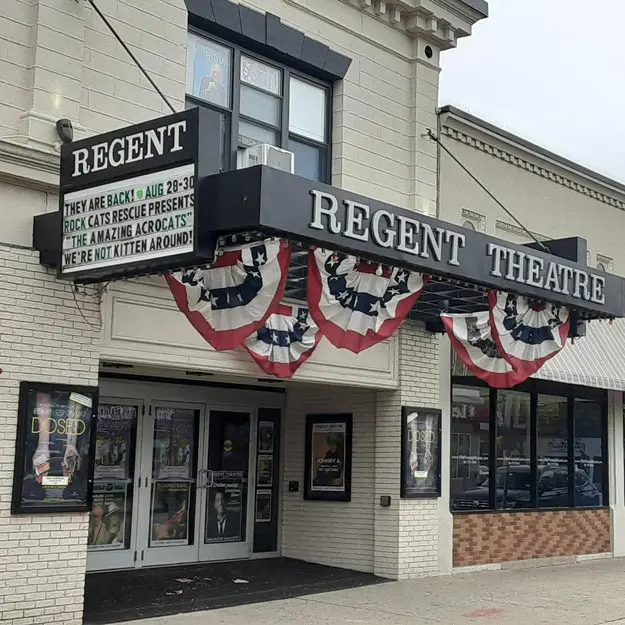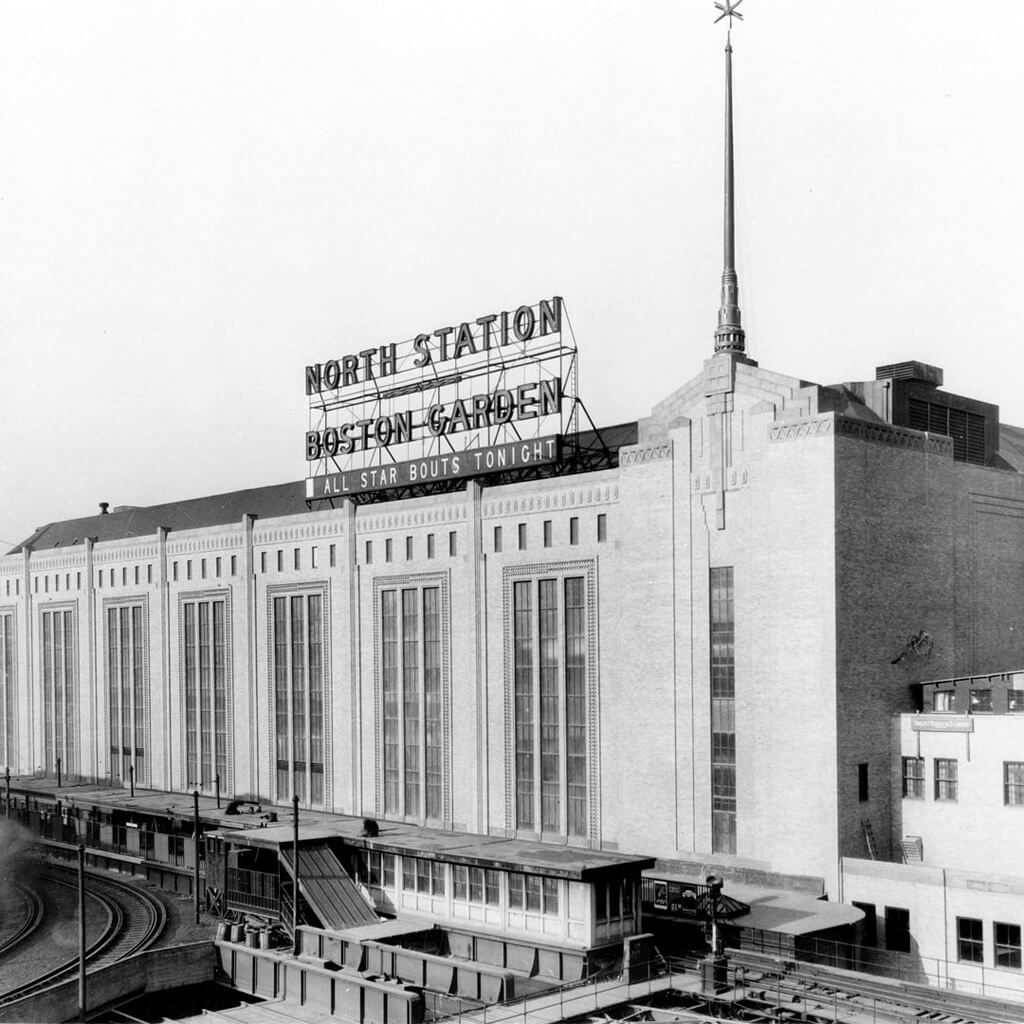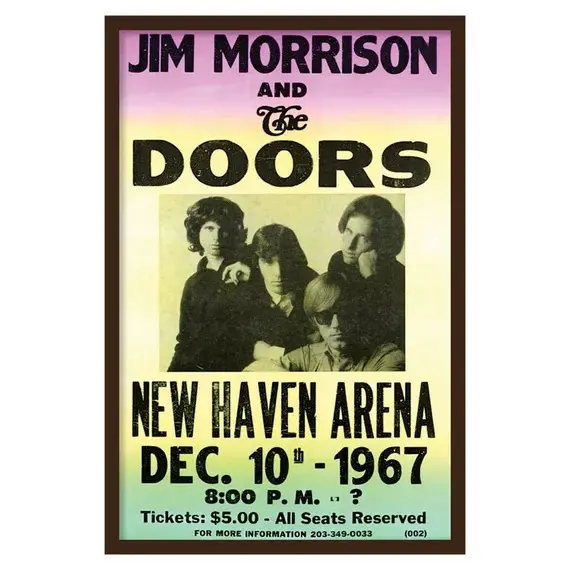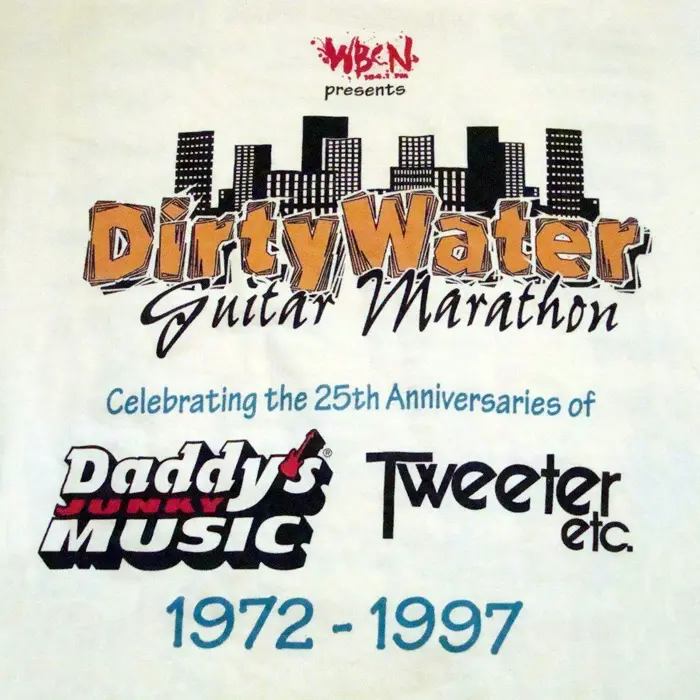The Mods
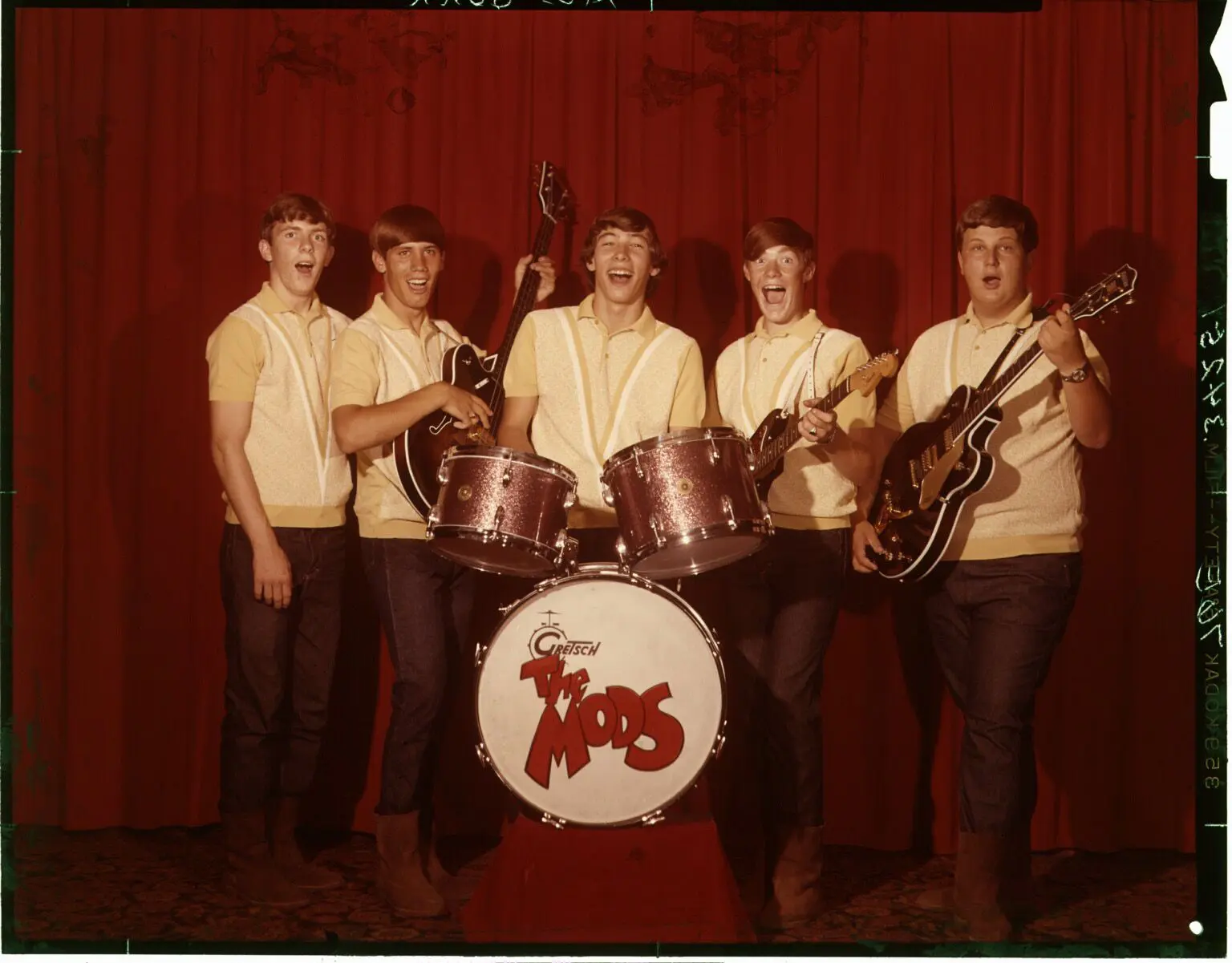
In the excitement of the early days of the British Invasion of 1964, Van Leister and Paul Narotski, two boyhood friends from Mattapan who had harmonized with the songs of Buddy Holly, The Everly Brothers, Del Shannon and The Beach Boys, watched The Beatles on The Ed Sullivan Show, and said, “Let’s start a band.”
Van approached Jack Petersen, whom he had known since pre-nursery school classes at their church, and who Van knew had taken piano lessons for many years. Jack was intrigued, but pointed out that neither of them had even ever held a guitar. Van convinced him that that was a minor inconvenience; after all, they had been singing along with records for years, and sounded pretty good, thank you very much – what’s the big deal? Van’s brother Robbie was recruited to play drums and sing back up but was shortly let go when it was found he couldn’t carry a tune or keep a beat. Their youthful naiveté and unabashed enthusiasm led them to continue their search.
Harry Sandler, Chuckie Norton
Needing a kitman, they proceeded to audition Harry Sandler, a neighborhood kid who owned a pair of drumsticks. He auditioned by playing along with a record in his living room on a vinyl-covered stool with a loose, jangly sounding rack. Van and Jack looked, listened and said, “Wanna play in a band?” And at the snap of a finger, Harry was rescued forever from a seemingly unbearable future as a management trainee in a soon-to-be-defunct discount store.
Now all they needed was an actual musician to round out the band. Enter 14-year-old musical prodigy Chuckie Norton. He was quite unhappy at being relegated to bass guitar in The Miltones by leader Jack Marcellino (who years later would be a founding member of Sha Na Na), because his 14-year-old bandmates were even better than Chuck. So, when the boys asked him if he would rather be bassist for The Miltones, or LEAD guitarist for this new vocal group, Chuck chose this unlikely collection of exuberant dilettantes with no visible evidence of musical ability. They all went out and bought instruments. They practiced a few songs, headed to Walker’s Riding Apparel for some cool band clothes and Crystal’s Shoes for Beatle boots.
First gigs, The Evergreens, Becoming “The Mods”
They learned a dozen or so songs and played their first show within weeks, a free performance for the Milton Demolay on December 28, 1964 under the name of “The Evergreens,” a name suggested by Jack’s cousin Ralph Donabed. Ralph could actually play a little rhythm guitar and was quickly recruited, as the boys could use all the help they could get. (They may have been naïve but they weren’t stupid.)
Ralph soon became the Al Jardine of The Mods when he opted to go back to college in Washington DC rather than drop out and hitch his wagon to The Mods’ star. (Life is about choices, both good and bad. You might remember that Al Jardine left the Beach Boys early in their career to go to dental school but scooted back when they started to hit it big. Who knows what would have become of The Mods if Ralph had stayed?)
As a result of that highly successful gig, they were hired for $50 to play their first paying job at Gate of Heaven School in South Boston, a fee that eventually escalated to $100 in the form of bonuses to play longer for the screaming fans. After the others in the band fended off attempts by Van to name the band “The Curtains” (any lamer than “The Doors”?) and Paul’s suggestion of “Paul N. and the RayMen,” they somehow got comfortable with “The Mods” (as in Mods and Rockers), more by default than by any great attraction or meaningfulness of the name.
Regular bookings, Repertoire, Notable venues, College mixers
The boys were being booked regularly at local high school and church dances all over the South Shore, especially in Braintree, where they built up a huge following. They were cooking now! Not only was the music a thrill, but the girls were well worth playing for. By the time the spring of ’65 arrived, the band was the hottest thing in Braintree and each of The Mods was invited to Braintree High School’s senior prom.
Their repertoire was highlighted by tunes that had never been attempted by local bands. Van and Paul traded lead singing duties admirably. Their music was distinguished by Paul’s high lead harmonies on never-heard-attempted-before songs prior to The Mods’ bringing them to the stage. Tunes like The Everly Brothers’“All I Have to Do is Dream” and The Beatles’“Tell Me What You See,” and Jack and Paul’s tight background harmonies made their Beatles covers soar on and especially “Boys,”with its thrilling “m’bop bop shu-op” backgrounds. Chuck’s Fender Jazzmaster rang out in bell-like brilliance on lead while Harry’s distinctive, flamboyant drumming style thrilled the girls (at least by his own account of those years).
If you wanted to see the band at the Rexicana Ballroom in Marshfield, you had to hitchhike to Marshfield early, or you wouldn’t get in. Soon they got a call to play the Cotillion Ballroom in Taunton, where the owners were trying to develop a regular dance. The Mods were well received, and the crowds got bigger and bigger, until they were offered the position of “house band,” and were put under contract by the owner, Sam Stone, and his partner, Ronnie Hebshie (R&S Productions, as they were known). They bought the boys new amplifiers and guitars, stage clothes, publicity photos, Mods book covers, and a candy apple red Econoline van (with the band’s logo painted on the side!).
R&S began booking The Mods all over New England. One of the highlights was that they became the Tuesday night band at The Rathskellar in Kenmore Square (known then, as it will always be, as “the Rat”). On Monday nights, the regular band was The Lost (with Willie Alexander) and on Wednesdays it was The Remains. This led to The Mods becoming popular with the college crowd, so they began doing college mixers.
Singles, Battle of the Bands, Opening for the Stones
Then their management booked them into TR Productions, a recording studio on Boston’s Commonwealth Avenue, where they recorded “Stop Your Sobbing,” an obscure single cut by The Kinks, backed with “Won’t Shed a Tear,” written by lead guitarist Chuck. Years later, Ray Davies (The Kinks) and Chrissie Hynde (The Pretenders) teamed-up in the studio, and “Stop Your Sobbing” became a big hit. The Mods’ recordings were rescued from the only known surviving copies on a 78-rpm acetate and transferred to CD for posterity.
The boys split from R&S, entered a battle of the bands and won, the prize being a spot opening for The Rolling Stones at Manning Bowl in Lynn in 1966. They shared what passed as a dressing room (under the stadium seats) with the Stones and were struck by their resemblance to troll-like gnomes close up. The Mods played their opening set, and were followed by The Tradewinds, The Standells and The McCoys. Everything was going well but it turned out that the security was poorly planned. It started to drizzle, about 20 minutes into the Stones’ set the crowd rushed the stage, police overreacted and shot tear gas, the angry crowd started throwing chairs and that was the end of the show. The Stones were off in a limousine, and the whole event was chronicled on the front page of the Boston Record-American the next morning.
Arnie “Woo Woo” Ginsburg, The Surf, Other venues
Next the band hooked up with Arnie “Woo Woo” Ginsburg, the hot deejay at WMEX, and played numerous gigs with him. Soon they were being booked at The Surf on Nantasket Beach, then at the Surfs in Salisbury and Hyannis. Their popularity with the crowds quickly led to their being signed as a house band in a stable headed by The Rockin’ Ramrods, and including The Pilgrims, the Techniques, The Tidal Waves, The Sandelles and The Pied Pipers. Over the next several years, they played all over New England, and were popular regulars at the Rexicana Ballroom, Catholic Memorial High School and Avon High School.
Becoming a quartet, Disbanding, Post-Mods activity
At the end of their second year as a band, lead singer Van left to spend more time with his family. The remaining four continued for another year, during which time the highlight was opening for The Dave Clark 5 at Boston Garden. The also warmed up crowds for The Barbarians, The Young Rascals and The Brooklyn Bridge, among others.
After their three-year run, Harry caught the wave of the Bosstown Sound and became the drummer for Orpheus, which went on to record three albums, tour the US extensively and appear on many TV shows and film soundtracks. Later, he established a career as a solo performer and became vice-president of a speakers’ booking agency. Chuck performed for several years with Myles Connors’ Myles & The Wild Ones, then with Avon-based Big Sky Country. He moved to Cape Cod and eventually recorded two albums of Christian songs.
Van started several businesses and is currently production manager for a local company. Paul ran his own business for many years until he was lured into teaching by the dream of summers off and weeklong vacations during the school year. He maintains relative control in the classroom by reminding his third graders that he knows more than they do, and anyway, he’s bigger than they are. Jack was in the recording business for many years and is now in sales.
All five of the Mods have settled with their families in the New England area. The “Live at the Surf” show was the first time the “Rock Legends of the ‘60s” had played together in almost 37 years. They are delighted at being referred to as such, except for maybe Harry, who actually believes that he is, indeed, a legend.
Reunions
In early 2003, Chuck White of the Boston Rock & Roll Museum interviewed Jack and Harry about the ‘60s rock scene, asking them if The Mods could ever be convinced to reunite for one night for a “Live at the Surf Nantasket”benefit for the Museum. Never one to let a minor obstacle like not having seen their lead guitarist for the better part of four decades stand in the way, Harry responded, “Sure, we’d love to do it. Count us in!” He then set about rounding up the rest of the band. Jack, Paul, and Van were quickly recruited. After many phone calls, Chuck was finally located, and the band rehearsed for several months.
On May 17, 2003, these “Boston Rock Legends of the ‘60s” were introduced live by none other than Arnie “Woo Woo” Ginsburg as well as by an enthusiastic, if not-entirely-accurate, videotaped introduction by Lennie Baker of The Wantells, The Pilgrims and Sha-Na-Na. They shared the bill with the Surf All-Stars, and The Remains, playing to an enthusiastic crowd at the Regent Theatre in Arlington. Rocking out in their inimitable style, the vocals soared and Chuck once again “played his guitar like he was ringin’ a bell” to the repeated roar of the audience’s standing ovations.
The band got together sporadically after that very special show in Arlington, but Chuck’s failing health made it more and more of a challenge. He passed away in the summer of 2006.
Bobby Mutulina, Recent activity
Not wanting that to be the end of The Mods’ reunion, Harry reached out to Bobby Matulina. (Remember The Miltones?) Well, Bobby was one of the three 14 year-old guitar prodigies that played with drummer Jack Marcellino. Harry asked him if he would be interested in jamming with the rest of The Mods.
[A little background: After Chuck left The Miltones for The Mods, Bobby eventually became the lead guitarist for The Pilgrims, a surf band started by Jack Marcellino and Lenny Baker. Whenever Chuck was unable to make a Mods gig, whether because of sickness or because his father refused to let him leave the house because Chuck had not finished his schoolwork, the boys would call on Bobby as a replacement. He’d put on Chuck’s stage clothes and seamlessly fill his position with no one the wiser. One time, when both The Mods and The Pilgrims were booked on the same Saturday night at the Surf Nantasket, Bobby played lead for BOTH bands, quickly changing his outfit between alternating sets.]Bobby had played on and off over the intervening years, but had, for the most part, given up in favor of family considerations. He became an electrician, and in 2008 retired from IBEW Local 103 after 35 years. When approached by The Mods, he’d reacquainted himself with his acoustic guitar and was headed in a more acoustic direction. Gradually, however, he regained interest in The Mods’ music and picked up his vintage Telecaster. The Mods were back!!
Over the last several years, the reconstituted Mods have played parties all over the New England area, and they hope to continue as long as they have the energy, friends and fans have the desire to return those “good old days.”

